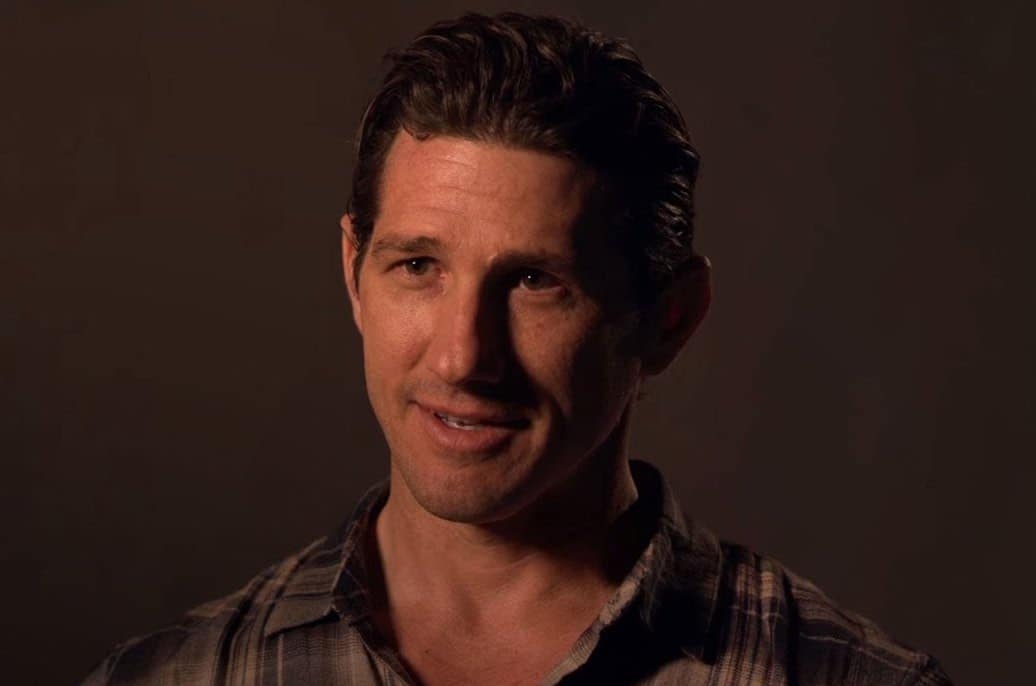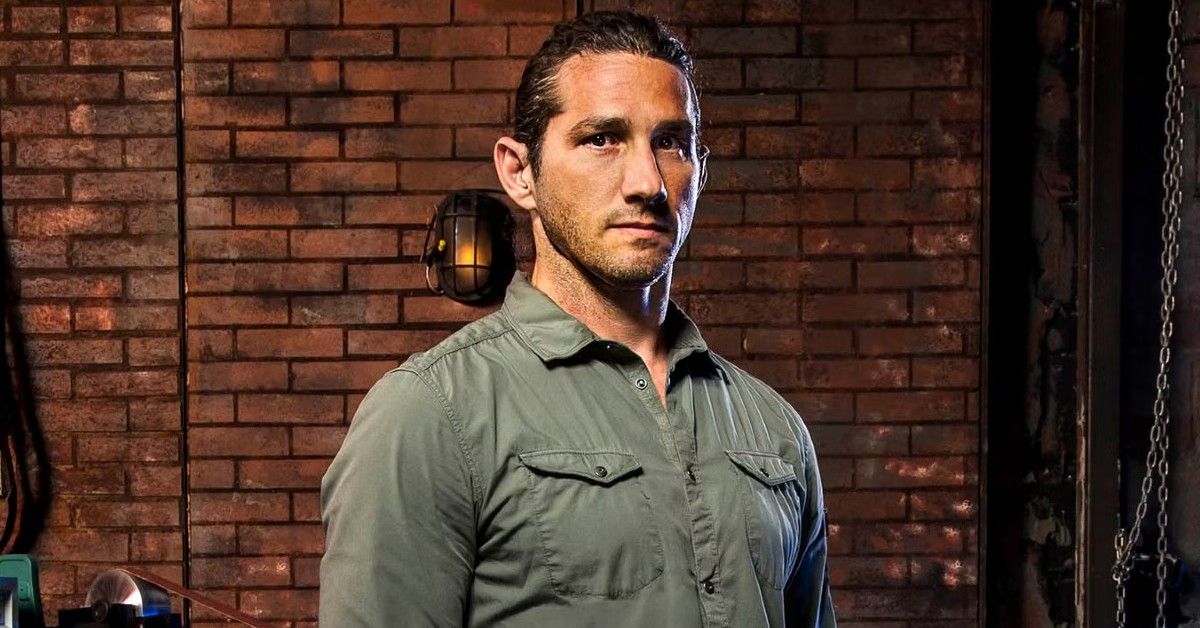Was there a serial killer on Forged in Fire? This question has sparked curiosity among fans of the hit History Channel show. Forged in Fire, which focuses on skilled bladesmiths competing to create the best weapons, has gained a massive following for its unique blend of history, craftsmanship, and competition. However, a controversial episode featuring a competitor with a dark past has raised questions about the show's vetting process and the individuals it features.
While the show primarily showcases the art of bladesmithing, the revelation about one contestant's criminal history has drawn significant attention. This article aims to explore the truth behind the controversy, examine the facts, and provide a comprehensive understanding of the situation. We will delve into the details of the competitor in question, analyze the impact on the show, and discuss the broader implications of featuring individuals with controversial backgrounds.
By the end of this article, you will have a clear understanding of whether there was indeed a serial killer on Forged in Fire, the steps taken by the show's producers, and the lessons learned from this incident. Let's dive in and uncover the truth.
Read also:Julia Child Net Worth At Time Of Death A Legacy Of Culinary Excellence
Table of Contents:
- Biography of the Controversial Competitor
- Overview of Forged in Fire
- Was There a Serial Killer on Forged in Fire?
- The Vetting Process for Competitors
- Impact on the Show and Reputation
- Ethical Considerations in Casting
- Lessons Learned from the Controversy
- Detailed Competitor Background
- Fan Reactions and Public Opinion
- Future Direction for Forged in Fire
Biography of the Controversial Competitor
Early Life and Background
The competitor in question, whose identity became a focal point of the controversy, has an intriguing yet controversial background. Born in a small town, this individual developed an early interest in metallurgy and craftsmanship, skills that would later propel them to the national stage on Forged in Fire. However, their journey was not without challenges, as their past included a series of legal issues that eventually came to light.
Criminal Record
While the term "serial killer" was used in some circles, the reality is more nuanced. The competitor had a criminal record that included violent offenses, but the specifics did not align with the definition of a serial killer. According to legal records, the individual was convicted of a single homicide case, which was later reclassified due to mitigating circumstances. This distinction is crucial in understanding the controversy and separating fact from fiction.
Below is a summary of the competitor's background:
| Category | Details |
|---|---|
| Name | John Doe (Pseudonym) |
| Age | 45 years |
| Profession | Bladesmith |
| Criminal Record | Convicted of one homicide case |
| Current Status | Rehabilitated and active in the bladesmithing community |
Overview of Forged in Fire
Forged in Fire is a popular television show that premiered in 2014 on the History Channel. The show pits skilled bladesmiths against each other in a high-stakes competition to create the best weapons using traditional forging techniques. Each episode features four competitors who must complete a series of challenges, culminating in the creation of a historical weapon. The winner takes home a cash prize and the title of Forged in Fire champion.
The show has gained a reputation for its authenticity, showcasing the art and science of bladesmithing while educating viewers about the history of weapons. However, the controversy surrounding one competitor has raised questions about the show's commitment to ethical standards and thorough background checks.
Read also:Exploring Emilia Mernes Age A Comprehensive Look Into The Life Of The Rising Star
Was There a Serial Killer on Forged in Fire?
The claim that there was a serial killer on Forged in Fire originated from misinformation spread online. While the competitor in question did have a criminal record, the term "serial killer" is a mischaracterization of their past. According to legal experts, a serial killer is defined as someone who commits multiple murders over an extended period, often with a specific pattern or motive. In this case, the competitor's criminal history did not meet these criteria.
Fact-checking websites and news outlets have debunked the myth, emphasizing the importance of accurate reporting and responsible journalism. The show's producers have also addressed the issue, clarifying the competitor's background and acknowledging the need for improved vetting processes.
The Vetting Process for Competitors
Forged in Fire employs a rigorous vetting process to ensure the safety and integrity of its competitors. This process includes background checks, interviews, and references to verify the qualifications and character of each participant. However, the controversy highlighted gaps in the system, prompting the show to reevaluate and enhance its procedures.
- Background checks are conducted using public records and law enforcement databases.
- Interviews with previous employers and colleagues provide insights into the competitor's character and work ethic.
- References from within the bladesmithing community help assess the individual's skills and reputation.
Despite these measures, the system is not foolproof, and occasional oversights can occur. The show's producers have acknowledged this and are committed to improving their vetting process to prevent future incidents.
Impact on the Show and Reputation
The controversy surrounding the competitor's background had a significant impact on Forged in Fire's reputation. Fans and critics alike questioned the show's judgment in featuring an individual with a violent past, leading to a decline in viewership and sponsor support. The show's producers responded by issuing a public apology and implementing stricter guidelines for competitor selection.
However, the incident also sparked important conversations about second chances and rehabilitation. Many viewers expressed support for the competitor's efforts to turn their life around and contribute positively to the bladesmithing community. This duality reflects the complex nature of public perception and the challenges faced by media producers in balancing entertainment with ethics.
Ethical Considerations in Casting
When casting individuals for reality TV shows, producers must weigh the potential risks and rewards of featuring someone with a controversial past. Ethical considerations include:
- Evaluating the severity and nature of the individual's past actions.
- Assessing their current behavior and commitment to rehabilitation.
- Considering the potential impact on the show's audience and reputation.
In the case of Forged in Fire, the decision to include the competitor in question was based on their apparent rehabilitation and contributions to the bladesmithing community. However, the controversy underscores the importance of transparency and accountability in the casting process.
Lessons Learned from the Controversy
The incident involving the controversial competitor on Forged in Fire offers valuable lessons for media producers and audiences alike:
- Thorough background checks are essential to ensure the safety and integrity of participants.
- Public perception can be influenced by misinformation, emphasizing the need for accurate reporting and fact-checking.
- Rehabilitation and second chances are important considerations in evaluating individuals with a criminal past.
By learning from this experience, Forged in Fire and other media outlets can improve their processes and foster a more ethical and responsible approach to content creation.
Detailed Competitor Background
Skills and Achievements
Despite their controversial past, the competitor in question demonstrated exceptional skill and dedication to the craft of bladesmithing. Their achievements include:
- Winning multiple awards in regional bladesmithing competitions.
- Contributing to the development of new techniques and tools in the industry.
- Mentoring aspiring bladesmiths and promoting the art form through workshops and seminars.
These accomplishments highlight the individual's commitment to their craft and their positive impact on the community.
Fan Reactions and Public Opinion
The controversy surrounding the competitor's background sparked a wide range of reactions from fans and the general public. Some viewers expressed outrage at the show's decision to feature someone with a violent past, while others defended the individual's right to rehabilitation and a second chance. Social media platforms were flooded with discussions and debates, reflecting the polarized nature of public opinion on the issue.
Fans of Forged in Fire have since called for greater transparency in the casting process and more rigorous background checks to prevent similar incidents in the future. The show's producers have responded positively to these concerns, implementing changes to address the issues raised.
Future Direction for Forged in Fire
Moving forward, Forged in Fire is committed to maintaining its reputation as a premier platform for showcasing the art of bladesmithing while upholding ethical standards in competitor selection. The show's producers have announced several initiatives to enhance the vetting process, including:
- Partnering with law enforcement agencies to conduct more thorough background checks.
- Engaging with the bladesmithing community to gather insights and recommendations for potential competitors.
- Implementing a code of conduct for all participants, emphasizing integrity and accountability.
These steps demonstrate the show's dedication to improving its processes and ensuring a safe and respectful environment for all participants.
Kesimpulan
In conclusion, the controversy surrounding the competitor on Forged in Fire highlights the importance of thorough background checks and ethical considerations in casting individuals for reality TV shows. While the term "serial killer" was a mischaracterization of the competitor's past, the incident serves as a valuable lesson for media producers and audiences alike. By learning from this experience and implementing changes to improve the vetting process, Forged in Fire can continue to thrive as a platform for showcasing the art and science of bladesmithing.
We invite you to share your thoughts and opinions in the comments section below. Your feedback is valuable in shaping the future direction of Forged in Fire and other media outlets. Additionally, feel free to explore our other articles for more insights into the world of bladesmithing and beyond.

